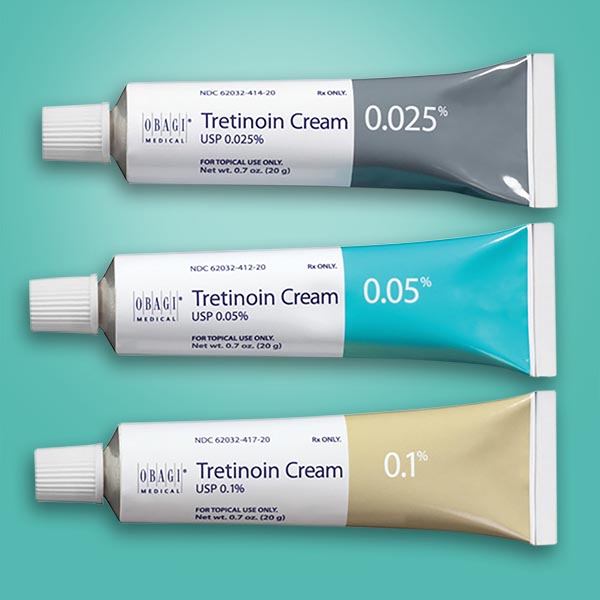Do any moisturizers or creams get rid of wrinkles?

“Rejuvenate.” “Restore.” “Brighten.” Skincare companies use vague buzzwords to imply that their elixirs, potions, and serums are the fountain of youth.
Here's the evidence for which products do—and don't—work.
Moisturizers
“A lot of my older patients complain of dry, itchy skin,” says University of Michigan dermatologist Erica Stevens. That’s because skin loses its volume over time, so it gets thinner and drier.
Moisturizers relieve dryness by helping the skin retain water. “That decreases the risk of tearing the skin if you’re scratching because it’s dry,” explains Stevens. (Torn skin increases the risk of infection.)
“But moisturizers don’t smooth out wrinkles,” she notes. “They just get rid of dryness and flakiness, which can make the skin look nicer.”
Don’t count on most ingredients that are added to moisturizers to banish wrinkles, either:
Hyaluronic acid. “It’s a naturally occurring molecule that holds onto moisture inside the skin and plumps up the skin,” says Marcel Nimni, an emeritus professor at the Keck School of Medicine at the University of California. “But it’s a huge molecule, so it doesn’t get through the skin.”
That means that creams and lotions with hyaluronic acid retain moisture on the skin’s surface, but they won’t have any long-lasting effect on the texture or smoothness of the skin.
Vitamin C. It’s necessary for building the collagen that gives skin its structure. Just don’t expect much from serums and moisturizers. “Vitamin C is pretty unstable,” says Stevens, except at a low pH. So if the moisturizer isn’t acidic, the vitamin C is often inactive by the time it reaches your skin. Or it may be bound to a stabilizing compound that doesn’t permeate skin. (No studies have looked at taking vitamin C to reduce wrinkles, but it’s unlikely to help.)
Other ingredients. “There are so many cosmeceuticals added to moisturizers, and it’s almost impossible to know whether they do what companies claim or how much is actually in a product,” says Stevens.
“They’re not like drugs. They don’t undergo rigorous testing, and almost all of the research is industry driven. You’d be hard-pressed to find any hard science for most of them.”
Her bottom line? “Use anything you like that feels good on your skin. There’s no reason to pay $100 for a moisturizer when you can use something basic from CVS.”
Retinoids
While moisturizers may not smooth out wrinkles, you're not out of luck.
In 1995, the Food and Drug Administration approved creams and lotions with tretinoin to lessen wrinkles and dark spots on skin. Tretinoin is a retinoid, one of a class of compounds related to vitamin A (retinol).
“The anti-aging effects of retinoids involve stimulating collagen production,” says Gary Fisher, a professor in the department of dermatology at the University of Michigan Medical School. And collagen matters.
“Most of the skin’s mass is collagen, a structural protein that acts as a scaffold,” explains Nimni.
Most people make less—and break down more—collagen as they get older. Even worse, “photodamage creates an environment in the skin that causes the skin cells to make less collagen,” says Fisher. Retinoids override those signals.
“The additional collagen adds volume to the skin, making it smoother and reducing wrinkles," Fisher explains. "Photodamage also creates dark spots, and retinoids lighten them.”

But retinoids can cause dryness and irritation. If you want to try them, start by using a cream with a low concentration (like 0.025 percent tretinoin) just a few times a week, gradually increasing the frequency, says Stevens.
Retinoids also make the skin more sensitive to the sun. If you use a retinoid, apply it at night and wear a hat or use sunscreen during the day.
And don’t expect to look like you had a face lift. The results are subtle and take time.
“It often takes three to six months to start seeing the benefits,” notes Fisher.
Tretinoin, which requires a prescription, is available as a generic drug. And it now has competitors: Tazarotene also requires a prescription, but adapalene (which the FDA has approved only for treating acne) is sold over the counter as Differin.
“All of them are beneficial,” says Stevens. “Tazarotene causes more dryness and irritation, so I prescribe it less often than tretinoin. Adapalene is the least irritating and most readily available, since you don’t need a prescription, though it isn’t as potent as tretinoin.”
What about over-the-counter creams with retinol?
“Retinol is metabolized in our bodies to tretinoin, which activates the pathways that lead to the skin-based benefits,” explains Fisher. But you’d need far more retinol to have the same impact. “Tretinoin is about ten-fold more potent than retinol,” he says.
The catch: over-the-counter creams don’t have to say how much retinol they contain. (They’re cosmetics, not drugs.)
“Some may have too little to be effective, and some may have high levels that can be irritating,” notes Fisher.
What about taking vitamin A (retinol) supplements? There’s no evidence that they help. And high doses can build up and eventually cause liver damage.
“Vitamin A acts on every cell in our bodies, so if you load up, you can run into trouble,” says Fisher.
The bottom line
For supplements and ingredients in moisturizers, serums, lotions, and creams that claim to have anti-aging properties: “There is unfortunately very little solid science and lots of pseudoscience about products to slow or reverse skin aging,” says Barbara Gilchrest, a dermatologist and photoaging expert at Massachusetts General Hospital. “Tried and true: sunscreens and tretinoin.”
Photos: PhotoSG/stock.adobe.com, Neutrogena (moisturizer), Obagi Medical (tretinoin cream).
Tags

